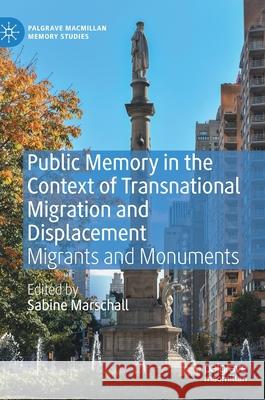Public Memory in the Context of Transnational Migration and Displacement: Migrants and Monuments » książka
topmenu
Public Memory in the Context of Transnational Migration and Displacement: Migrants and Monuments
ISBN-13: 9783030413286 / Angielski / Twarda / 2020 / 326 str.
Public Memory in the Context of Transnational Migration and Displacement: Migrants and Monuments
ISBN-13: 9783030413286 / Angielski / Twarda / 2020 / 326 str.
cena 523,30
(netto: 498,38 VAT: 5%)
Najniższa cena z 30 dni: 501,19
(netto: 498,38 VAT: 5%)
Najniższa cena z 30 dni: 501,19
Termin realizacji zamówienia:
ok. 22 dni roboczych.
ok. 22 dni roboczych.
Darmowa dostawa!
Kategorie:
Kategorie BISAC:
Wydawca:
Palgrave MacMillan
Seria wydawnicza:
Język:
Angielski
ISBN-13:
9783030413286
Rok wydania:
2020
Wydanie:
2020
Numer serii:
000406823
Ilość stron:
326
Waga:
0.56 kg
Wymiary:
21.01 x 14.81 x 2.06
Oprawa:
Twarda
Wolumenów:
01
Dodatkowe informacje:
Wydanie ilustrowane











